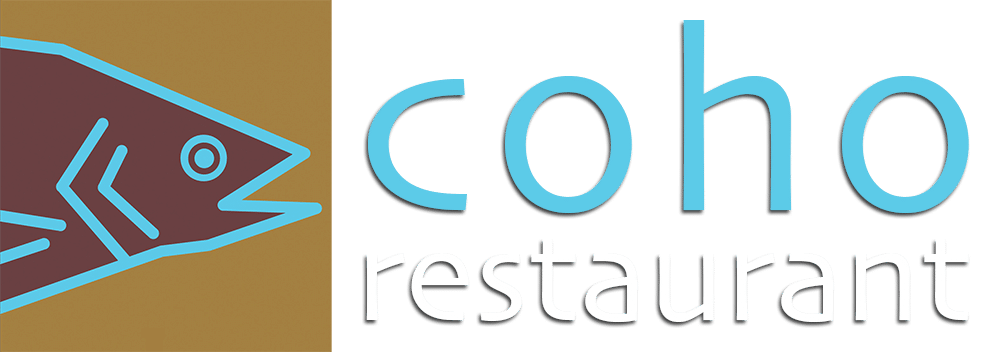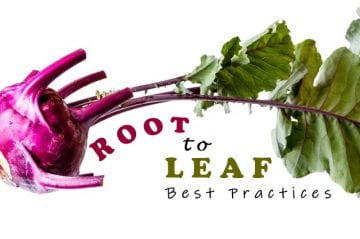By Shelley Klausen & Tim Payne

At Coho Restaurant we make every attempt to practice what we preach with regards to sustainable food preparation, safety, and service. Since opening in April 2008, Restaurant Owners Davis Pass and Anna Maria de Freitas (along with their chefs) have always been passionate stewards of local farms and farmers. They have always wanted their establishment to be an important player in the island farm-to-table food scene.
For the past seven years, they have retained their dedication to serving the freshest fruits and vegetables of the season and buying from meat producers who use humane rearing and butchering practices. Last September, to the disappointment of some diners, the restaurant took salmon off the menu to help minimize its impact on our resident Orca whale’s delicious food supply.
Sustainable Food Practices – The Right Thing to Do
In her blog, “No More Coho at Coho,” Anna Maria writes, “Despite no salmon on Coho Restaurant’s menu, there will be plenty of other satiating options to enjoy when you join us for dinner. Chef has a local catch of the day and other entrees sourced from the land that reflect the restaurant’s commitment to sustainable ingredients…and, it’s the right thing to do.”
In 2019, Coho Restaurant is taking further steps towards its initial mission towards sustainable practices. While these ways of thinking about beautiful ingredients have always been in place, the restaurant is now taking them public in an effort of educating the food-loving public about best industry practices, as well as making authentic internal changes that diners can see and taste when experiencing a meal.
Transparency and Honesty in Sourcing

When dining at Coho Restaurant, it will now be apparent where the components of your meal are coming from. At the bottom of each day’s menu is now listed the farms and vendors that contribute to the fresh organic ingredients on your plate. During a recent visit, my meal consisted of a Radicchio Antipasto Salad with fresh organic sunchokes and a bolognese bianca with housemade pasta sourcing eggs from a variety of local farms and flour from Cairnspring Mills in Burlington, WA. The spring lamb was sourced from Sage & Sky Farm raised by our neighbors in Bellingham.
If you aren’t sure, or it isn’t clear, servers will be educated and able to answer questions. Chef Tim Payne, a big believer in local organic food sourcing is leading the push. “Closely aligning ourselves with farm partners and proving we practice what we preach should be apparent in everything we do,” he states. In some cases, this means making a greater effort to seek out like-minded sources who align with the Coho chefs’ carefully crafted menu. For instance, the polenta comes from Dunbar Farms in Medford, Oregon. Tim says that his research led him to this organic farm (and winery) that hand mills their ancient corn variety to order. We know our diners will taste the difference.
Utilizing as Much of the Product as Possible
Known these days as nose-to-tail or root-to-bud cooking, this sustainable practice is exactly what it sounds like, whether it be meat or plant. “Take a bundle of kale,” says Tim. “We are using the leafs, cleaning and blanching the tough stalks to grill, then using all of the other scraps and making a pesto out of that.” He explains that on most weeks, he and Chef Ryan are close to 99 percent of usage. From a business standpoint, the nose-to-tail model is also responsible as food waste is literally money out the window. What’s more, most restaurants aren’t going this far or talking about this important move towards true sustainable practices.
Chefs Tim and Ryan hope others will jump on board the movement, making Friday Harbor a haven for farmers and foodies alike. We invite you to taste the fruits of their thoughtful labors throughout the year at Coho Restaurant.

